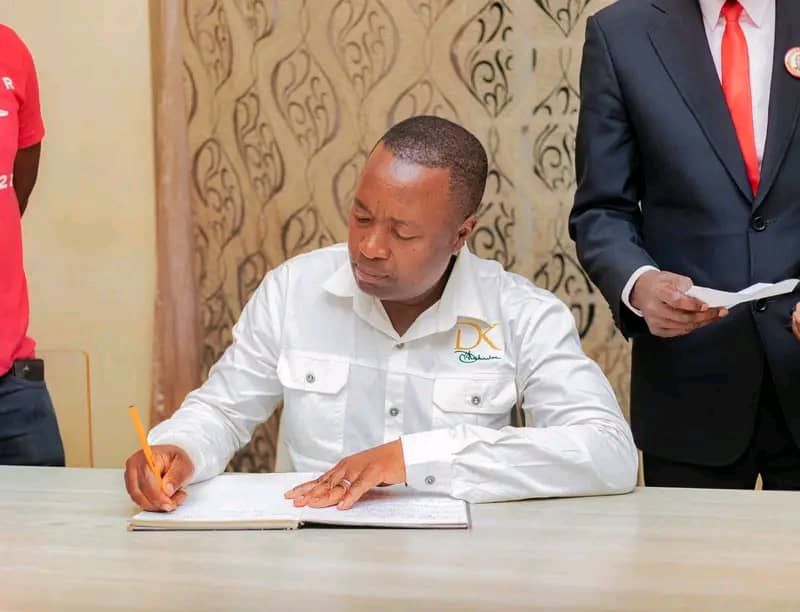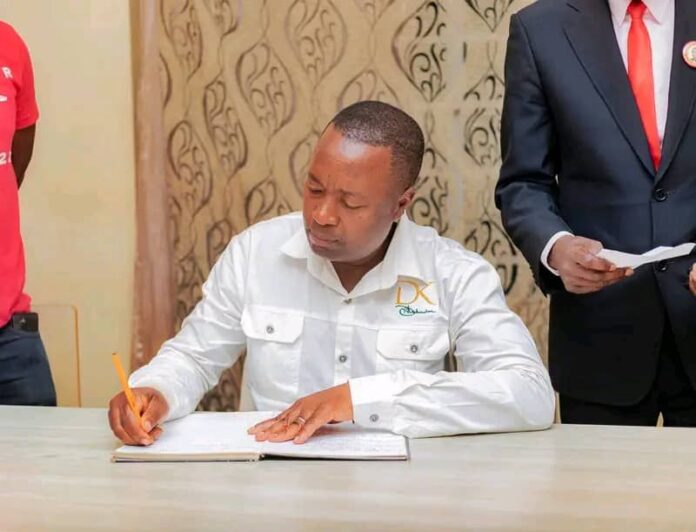By Burnett Munthali
Former Reserve Bank of Malawi (RBM) governor and UTM Party president Dalitso Kabambe can now breathe a sigh of relief as his retirement from public service has finally been approved. This decision, communicated by the Office of the President and Cabinet (OPC), marks the end of a protracted five-year standoff over Kabambe’s employment status.
The retirement approval, signed by Secretary to the President and Cabinet Colleen Zamba, puts to rest years of uncertainty that followed Kabambe’s departure from the RBM in 2020. Kabambe’s tenure at the central bank ended under a cloud of controversy when he became politically active, eventually contesting for leadership in the UTM Party and vying for higher political office.

Since then, Kabambe’s employment status within the public service has been a subject of heated debate. The stalemate arose from procedural delays and legal complexities surrounding his application for retirement. Critics argued that the hold-up was politically motivated, aimed at frustrating Kabambe’s ambitions and tainting his image.
Kabambe’s struggle for official retirement has drawn widespread attention in Malawi, with some seeing it as emblematic of broader governance issues. Over the years, Kabambe has publicly expressed frustration over the delays, stating that the unresolved matter not only affected his personal life but also created a cloud of doubt over his professional legacy.
Now, with the OPC’s decision, Kabambe is officially retired and can move forward without the shadow of his unresolved employment status. In a statement, Kabambe welcomed the decision, calling it a victory for fairness and justice. “After years of waiting, I am finally free to focus on my political journey and serve the people of Malawi without any distractions. This decision brings closure to a challenging chapter in my life,” he said.
The retirement approval is expected to have significant implications for Kabambe’s political career. With his public service status now clarified, Kabambe can fully dedicate himself to his role as UTM Party president and position himself as a key contender in Malawi’s political landscape.
Observers have noted that the prolonged delay in approving Kabambe’s retirement highlights the challenges faced by public servants who transition into politics. Many argue that such delays undermine public confidence in governance systems and raise questions about the impartiality of administrative processes.
As Kabambe turns the page on this chapter, he joins a growing list of former public servants who have successfully navigated the often turbulent waters of retirement and political involvement. His case serves as a reminder of the importance of safeguarding the rights of individuals, regardless of their political affiliations, and ensuring that bureaucratic processes remain fair and transparent.
For now, Kabambe’s supporters are celebrating the news, viewing it as a vindication of their leader’s resilience and determination. As he moves forward, all eyes will be on Kabambe to see how this newfound freedom shapes his political trajectory and his vision for Malawi’s future.



